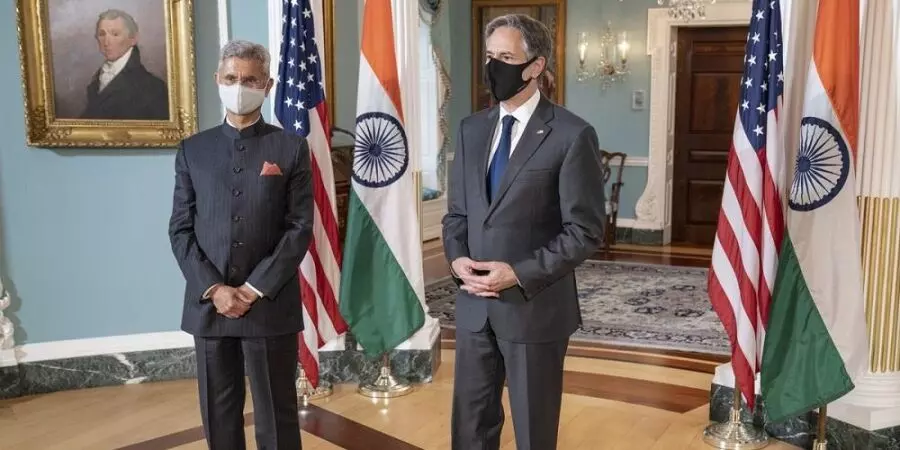
US is a premier power, none can deny it: Union Minister Jaishankar
text_fieldsMelbourne: Acknowledging the US' status as being the premier world power, External Affairs Minister S Jaishankar said that even a competitor of the US has no different opinion about it.
Delivering the annual JG Crawford Oration at the Australian National University,
He was delivering the annual JG Crawford Oration at the Australian National University.
"The US is undeniably the premier power of our times and will remain so. Indeed, such is its centrality to the current order that be its ally, competitor, the agnostic or the undecided, none of us can really be indifferent to its posture," Jaishankar added.
Jaishankar talked about "quantum shifts" along with more organic changes globally and said the world is at the cusp of something big and that the Indo-Pacific would be very much at its core.
"The geopolitical turbulence in the Indo-Pacific, the ripple implications of the Afghanistan withdrawal and the larger consequences of the Covid pandemic are three such current examples," he said.
"Those who connect the dots would surely agree that we are really now at the cusp of something big. As we seek to discern the outlines of what emerges next, there is no question that the Indo-Pacific would be very much at its core," Jaishankar said in the virtual address.
Referring to Quad -- comprising the US, India, Japan and Australia -- he said its working takes into account the consequences of globalisation, requirements of the global commons and the expression of converging interests.
"The Malabar naval exercise is cited most often as its example. But Quad's expanding agenda affirms a declared intention to promote greater prosperity and ensure stability in the Indo-Pacific-so, it should not be seen narrowly," he said.
In the last two years, Jaishankar said, the Quad has focused on challenges that vary from maritime security, cyber security and disaster response to connectivity and infrastructure, climate action and counter-terrorism.
Referring to geopolitical developments and challenges, Jaishankar also elaborated on the role of the US and delved extensively into the reality of the strategic recalibration by it, adding the country is "undeniably the premier power of our times and will remain so."
"To begin with, there is the reality of the strategic recalibration of the United States. Some of it may arise from its commitments and deployments, but there is also the relative growth of competitors and the increasing complexity of challenges," he said.
"Both the landscape and the tasking demand a response that cannot be the same as before. Call it America First or a foreign policy for the middle class; the difference in responsibilities, resources, activities and attitude are not possible to obfuscate," he said.
"The US is undeniably the premier power of our times and will remain so. Indeed, such is its centrality to the current order that be its ally, competitor, the agnostic or the undecided, none of us can really be indifferent to its posture," Jaishankar added.
At the same time, he said the American polity is going through serious introspection and that could well result in a different method of engaging the world.
The second big driver of the changes, according to Jaishankar, is the impressive growth of Chinese power.
"There are three autonomous aspects to this phenomenon that need to be considered analysis. The first is the enormous expansion of Chinese capabilities in virtually every field," he said.
"The second is a projection pattern that changed beginning with 2009, and then more vigorously, after 2012. The third - and this was particularly apparent during the pandemic - is China's deep relevance to the global economy," he observed.
The external affairs minister also noted that the last two decades have seen a real transformation in India's relations with its three Quad partners: the United States, Japan and Australia.
In an apparent reference to the need for reform of the UN ad other global bodies, Jaishankar said a 75-year-old world order had run its course and was ripe for change.






















